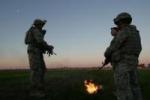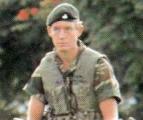Some very good points there Schmedlap. I’d be inclined to agree. Your suggestions seem to make it a lot easier for everyone to be singing from the same sheet.
In Timor I and some others were attached to Batalion S2 ‘information cell’. (We were not Intel trained at all but they didn’t know what else to do with us…..but that’s a whoooole different story.) We did indeed spend most of our time ‘translating’ info into our database. That included transforming a few ‘self designed’ Coy-databases into our own. Lots of vaguely overlapping procedure and timewasting with many people not really knowing where they fit in best.
I hope following rotations managed to streamline things a lot better….not sure.










 . Second, I'm sure it has happened in every war that was ever fought. Third, the intelligence problem is only one of other issues with the military. I was not trying to imply the intelligence problems led to our initial failures in Iraq.
. Second, I'm sure it has happened in every war that was ever fought. Third, the intelligence problem is only one of other issues with the military. I was not trying to imply the intelligence problems led to our initial failures in Iraq.
Bookmarks